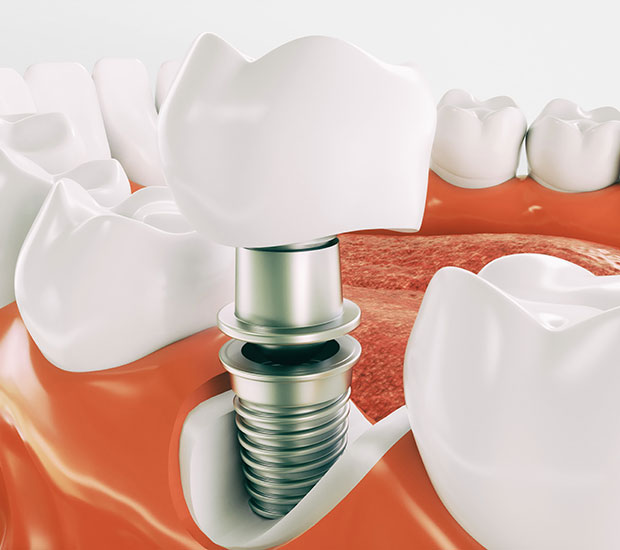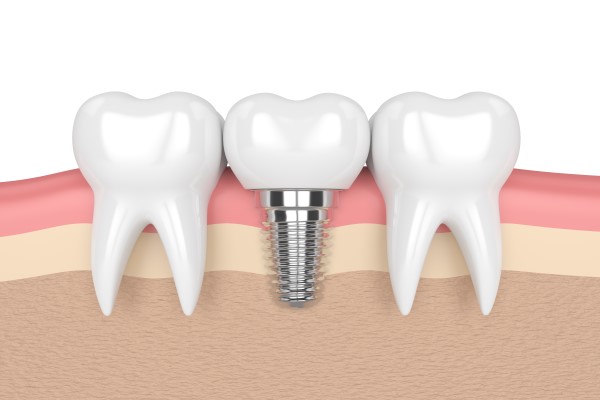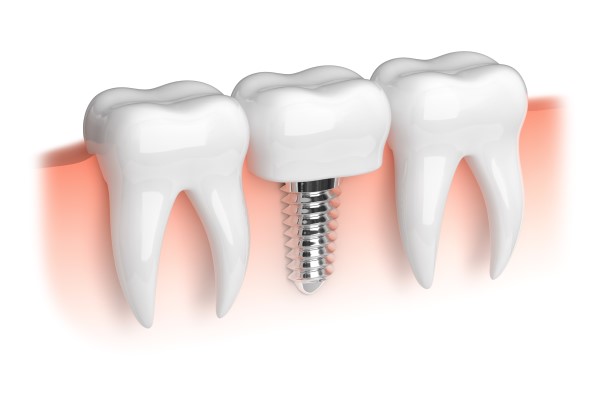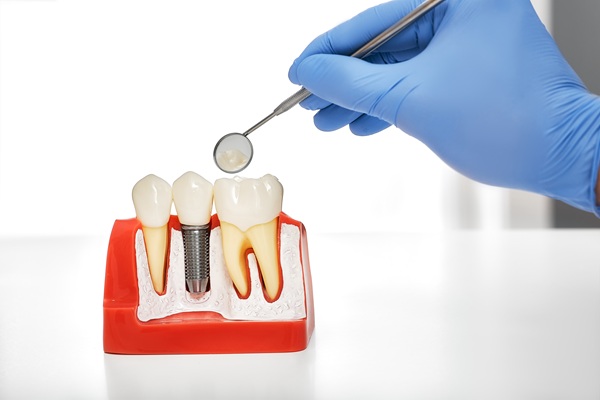Dental Implant Restoration Peabody, MA
Dental implants can last decades, but may require maintenance and repair. An implant restoration returns a loose or damaged implant to its original form and function. It is far more common to need restoration than many patients anticipate.
Dental implant restoration is available at Northside Dental Care, PC in Peabody and the surrounding area . Our dedicated team can answer your questions and provide useful information on the process and choose the right treatment form. Call us at (978) 206-7077 to receive more information and schedule a consultation time.
An overview of dental implant restoration
According to the Center for Disease Control and Prevention, and data from the National Health and Nutrition Examination Survey, 91% of adults aged 20–64 had dental caries, and 27% had untreated tooth decay that can lead to tooth loss. But tooth decay is not the only factor that can lead to tooth loss; gum disease is another common cause. Also, many people lose teeth to accidents or trauma. By the age of 44, an estimated 69 percent of Americans have lost at least one tooth. Tooth loss is growing, and the need for solutions is growing with it.
One popular and effective solution is dental implants. They offer an alternative to dentures that need to be removed and cleaned. Implants give the patient an option that most closely resembles natural teeth. Though dental implants are made to last for decades, they still need to be maintained, and that is where implant restoration comes in. Dental implant restoration involves restoring the strength, appearance, and function of a dental implant that has become loose, damaged, or experienced another form of complication.
“Tooth loss is growing, and the need for solutions is growing with it.”
When dental implant restoration is necessary
Dental implant restoration involves restoring the strength, appearance, and function of a dental implant that has become loose or damaged. When a patient has an issue with a dental implant, it is best to seek assistance from a professional. Here are some examples of circumstances that prompt the need for dental implant restorations:
- Poor oral hygiene: It is essential to practice a consistent oral hygiene routine that includes brushing several times each day, flossing, using mouthwash, and being mindful of any issues with the mouth.
- Fractured dental implant: If a dental implant is fractured, a dentist will need to remove the broken pieces and replace the implant.
- Loose dental implant: Gum recession, gum disease, and failure of the dental implant to stabilize the jaw are just a few examples of what could cause a loose implant. That is why it is crucial to seek prompt assistance when an implant is loose.
- Worn-down implant. Though dental implants can last decades, they are still prone to damage due to aging or issues such as teeth grinding.
- Cosmetic concerns. Cosmetic issues such as discoloration can be improved through implant restoration as well.
Northside Dental Care, PC encourages anyone who experiences complications with the stability, function, appearance, or health of their dental implant or the surrounding area to schedule an appointment to learn how implant restoration can help.
“When a patient has an issue with a dental implant, it is best to seek assistance from a professional.”
Overview of the implant restoration procedure
Each restoration procedure is unique. If complications develop with the dental implant and restoration is necessary, the dentist will conduct an oral examination to determine the severity of the issues and the underlying cause. Our team will answer any questions you may have. The dentist may recommend other dental treatments, such as gum disease treatment, bone grafting, and gum grafting.
When replacing a dental implant, the current implant is typically removed and replaced with a screw-retained or cement-retained restoration. These are the two primary types of dental implant restorations. According to FOR.org, complication rates of both are nearly identical at around 3%. A screw-retained restoration provides secure retention and is easy to tighten if it becomes loose, but it may not be as cosmetically pleasing. Many consider cement-retained restorations to be more attractive, but they are often more difficult to adjust if issues with the implant develop. Our team can help you decide which type is best suited to you.
“If complications develop with the dental implant and restoration is necessary, the dentist will conduct an oral examination to determine the severity of the issues and the underlying cause.”
Check out what others are saying about our dental services on Yelp: Dental Implant Restoration in Peabody, MA
After the procedure
There is typically some discomfort following an implant restoration and aftercare instructions to follow. To speed up recovery and avoid irritation of the affected area, stick to a soft diet of healthy foods and do not consume beverages high in sugar. Patients are often required to make routine follow-up visits as well.
You can take steps to make your dental implants last and reduce the need for implant restoration. Dentists advise you not only avoid certain foods but also tobacco products and smoking. For dental implants, patients should use a low-abrasion toothpaste along with a soft-bristled toothbrush. Special flosses and interdental brushes can make it easier to keep your dental implants clean and the area around them healthy.
“You can take steps to make your dental implants last and reduce the need for implant restoration.”
Questions Answered on This Page
Q. Why does someone need dental restoration?
Q. What causes damage to implants?
Q. What is involved in a typical dental restoration procedure?
Q. What should you do after an implant restoration procedure?
Q. What do I do if my implant feels loose?
People Also Ask
Q. When should people seek an implant dentist?
Lose and Fractured Implants
If the crown is loose or broken or the abutment that joins it to the implant is loose, it is more likely to be an easy fix. However, If the actual implant post is loose or fractured, things get more complicated. A broken implant post must be taken out and replaced with a new one. The same goes for a loose implant post, but there are cases where the crown may be reused on the new implant. If you have had bone loss, you may need bone grafting and time to heal before receiving the new implant.
No matter what the cause, treat a loose implant as a dental emergency. A loose implant can lead to bone loss and infection, and any type of damage can worsen if ignored. Call our team right away if an implant becomes loose or damaged.
“No matter what the cause, treat a loose implant as a dental emergency.”
Frequently Asked Questions
Q. What causes the need for dental implant restoration?
A. There are many reasons why a dental implant restoration may be necessary. Bone grafting complications, maxillary arch implant complications, and improper implant placement are just a few of the issues that may necessitate an implant restoration. If any problems develop with the look, feel, or function of the implant, consider a restoration.
Q. Is dental implant restoration painful?
A. There may be some discomfort in the area around the restoration. Overall, the restoration procedure does not involve nearly the same level of discomfort or recovery time. Our team will strive to make the process as easy as possible for you.
Q. How long does a dental implant restoration last?
A. Patients can expect the results of their dental implant restoration to last for years, if not decades. For the most part, patients do not experience issues after restoration. Proper home care (oral hygiene, proper diet, etc.) and frequent dental visits are crucial in making an implant restoration last.
Q. How do I make a full recovery following dental implant restoration?
A. Soft foods such as oatmeal, yogurt, soup, and cooked vegetables ensure you get the nutrients you need without excessive chewing. This is an integral part of avoiding irritation during recovery. It may also help to take an over-the-counter reliever recommended by your doctor.
Q. Which type of implant restoration is better, screw-retained or cement-retained?
A. This depends on the needs and preferences of the patient. Screw-retained restorations are easier to tighten if they become loose and have better retention. The more cosmetically appealing choice is the cement-retained restoration, which is more difficult to adjust if complications arise.
Quality Dental Services Can Transform Your Smile
By visiting us as soon as possible, our team can help get you the professional treatment you need. Instead of waiting around and allowing the symptoms to get worse, we can provide you with treatment options.
Dental Implant Terminology
Call Us Today
Our team offers dental implant restoration to patients who experience complications with artificial teeth supported by implants. If you feel you need a restoration or have concerns with your implant for any reason, give us a call at 978-206-7077 and schedule a time to come in for a consultation.
Helpful Related Links
- American Dental Association (ADA). Glossary of Dental Terms. 2021
- American Academy of Cosmetic Dentistry® (AACD). Home Page. 2021
- WebMD. WebMD’s Oral Care Guide. 2021
About our business and website security
- Northside Dental Care, PC was established in 2002.
- We accept the following payment methods: American Express, Cash, Check, Discover, MasterCard, and Visa
- We serve patients from the following counties: Essex County
- We serve patients from the following cities: Peabody, Danvers, Salem, Lynnfield, Middleton, Saugus, Beverly, Marblehead, Gloucester and Lynn
- Norton Safe Web. View Details
- Trend Micro Site Safety Center. View Details








